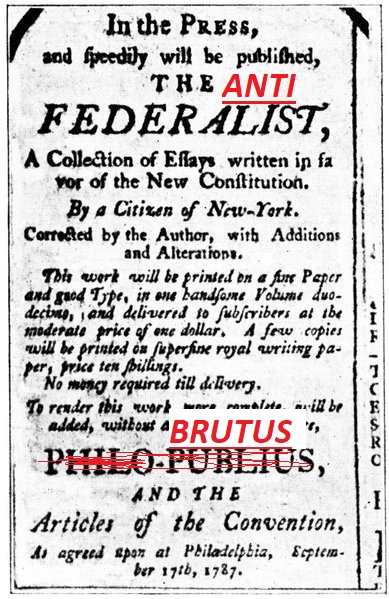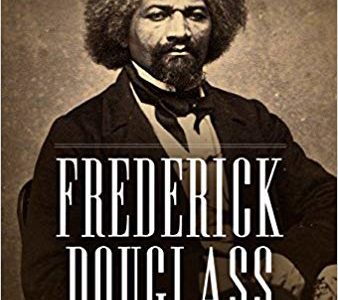
It’s easy to cheer for the Constitution now. But in 1787, not everyone was excited about it. Not even all the Founding Fathers favored ratification.
Serious students of the Constitution study the Federalist Papers, written by John Jay, James Madison, and Alexander Hamilton. To even casually curious historians, The Federalist Papers are known as the prominent arguments in favor of ratifying the Constitution. We all easily forget, though, that the proponents of the Constitution had opponents.
Since we forget that they had opponents, we certainly forget what the opponents were called. Well, it’s not that hard. Those who favored ratification of the Constitution were the Federalists, so those who opposed ratification were the Anti-Federalists. We know who wrote the Federalist Papers, but we only know some of the authors of the Anti-Federalist Papers.
Probably their greatest impact was securing certain guarantees, which became the Bill of Rights. Some of the Anti-Federalists went on to hold prominent positions in the new government under the ratified Constitution.
In this episode of the Personal Responsibility Lawyer podcast, I had the distinct privilege to interview Judge Andrew Oldham. Judge Oldhamis one of the foremost authorities on the Anti-Federalist Papers and also a sitting judge on the United States Court of Appeals for the Fifth Circuit.
Judge Oldham has written about the Anti-Federalist Papers in the New York University Journal of Law & Liberty. I strongly recommend that you read this piece. There’s a ton of fascinating history there that adds great color and texture to the whole ratification story. We tend to think of the Founders as a bunch of friends who got along and worked together to find a mutually agreeable solution to the problems the new nation faced. That’s simply not the case. Reading the Anti-Federalist Papers–and some of the fierce accusations made by the writers–reveals the bigger story.
The Wall Street Journal has also written about Judge Oldham’s scholarship, specifically regarding the insights they give us into modern administrative law.
There’s so much that is fascinating about the Anti-Federalist Papers, and it’s way more than I can cover here. Listen to this episode and then start going down the rabbit hole of information until you realize you have to come back out and get some work done!
Note: Judge Oldham’s appearance on the Personal Responsibility Lawyer does not indicate any endorsement of Lovins Trosclair, PLLC, or of the Personal Responsibility Lawyer.



